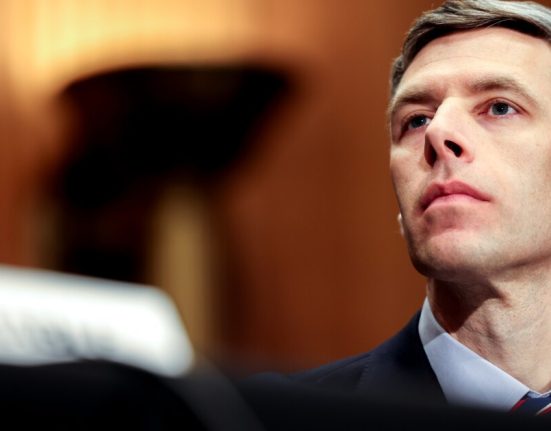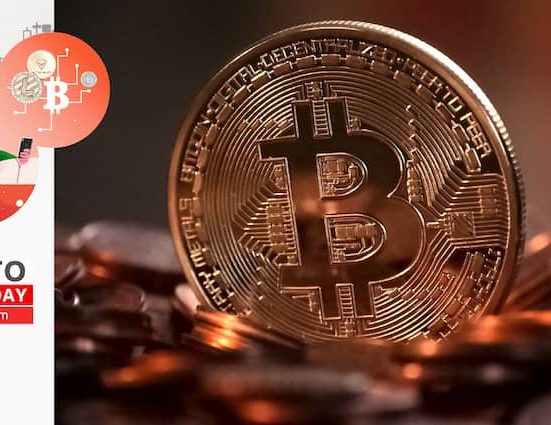The Executive Chairman of the Economic and Financial Crimes Commission, Mr Ola Olukoyede, on Thursday raised concerns over the increasing use of virtual assets such as cryptocurrency by fraudulent politicians and scammers to conceal illicit wealth and perpetrate investment fraud.
Speaking at an event to mark the Africa Anti-Corruption Day in Gombe, Olukoyede who Zonal Director DCE Hanafi Sa’ad represented, revealed that some politically exposed persons have started leveraging digital assets to evade the scrutiny of anti-corruption agencies.
“Our findings show that fraudulent politicians are already perfecting schemes and hiding their loot in cryptocurrencies to beat the investigative dragnets of anti-corruption agencies,” he said.
According to him, stolen funds and unexplained wealth are being stored in digital wallets, and payments for services are increasingly routed through blockchain-enabled platforms, making it difficult for authorities to trace.
“Stolen funds and unexplained wealth are being warehoused in wallets and payments for services are being done through this window. Investment schemes are also being facilitated through it,” he added.
Despite the evolving complexity of digital crimes, Olukoyede assured Nigerians that the EFCC is fully equipped to tackle such threats.
“For us at the EFCC, virtual assets fraud and investment scam are not hard nuts to crack. Proactive and broad-based training and intelligence are bringing fraudulent schemes to the fore,” he declared.
He cited the recent CBEX scam as a notable example of the Commission’s operational success in combating such fraud.
“There are enormous proofs of operational successes in this regard, especially the breakthrough in investigation and prosecution of the infamous CBEX scam,” Olukoyede noted.
The EFCC boss also expressed concern over the alarming spread of investment fraud across Africa, particularly the rise of Ponzi schemes targeting desperate investors.
“Investment fraud, like virtual assets fraud, is spreading like wildfire across Africa. Fraudsters are exploiting vulnerabilities of desperate investors through various dishonest schemes,” he said, adding that, “Ponzi schemes rank as one of the most pervasive of such acts.”
Olukoyede urged the public to take greater responsibility by conducting due diligence before investing and reporting suspicious activities promptly.
“The investing public do inadvertently aid fraudulent practices through lack of due diligence on schemes advertised to them.
“Another lesson is that investors hardly send suspicious transaction reports to the EFCC until they are defrauded,” he stated.
He emphasised that most investment scams thrive due to investor negligence, calling on Nigerians to educate themselves about financial risks and digital assets.
“No investment scam can succeed without the negligence of investors.
“Virtual assets and investment fraud, like other fraudulent activities, are preventable. The escape route is adequate knowledge and understanding of issues involved,” he warned.
He concluded by encouraging open dialogue at the forum, urging participants to be factual and honest in dissecting the intricacies of virtual assets and related investment issues.
“Experts in the house should avail participants of technical details involved in virtual assets and their management.
“The window of ignorance which fraudulent investment operators are opening to defraud innocent members of the public should be closed,” Olukoyede said.
On his part, Head of Investigation, Austine Adache, during his presentation on ‘Investment fraud and its impact: The Nigerian experience’ harped on the need to conduct due diligence.
He said, “Educate oneself and stay informed of the latest investment schemes. Verify licenses and research the company. Understand the investment
cast-off unrealistic profit or promises (ROI). Avoid hasty decisions under pressure. Seek professional advice. Don’t rely on unverified sources. Protect your information.”
Also, Abubakar Abdulkareem, Head PCM, while presenting on ‘Understanding virtual assets’ said virtual assets (crypto assets) can be defined as a digital representation of value that can be transferred, digitally traded and used for payment or investment purposes.
He said, “Essentially, it is a digital representation of something with value that can be bought, sold, or traded. It is not physical; it exists only as data on a computer or network. It has worth, meaning people are willing to exchange it for other things or use it to represent ownership or rights. You can buy it, sell it, or transfer it to someone else using digital platforms.
“Virtual Asset exist as Cryptocurrency, which in simple term means digital payment system that can enable anyone anywhere to send and receive payments. It is a peer-to-peer system that doesn’t rely on banks to verify transactions.
“Unlike physical money that is carried around and exchanged in the real world, cryptocurrency payments exist purely as digital entries to an online database describing specific transactions. When you transfer cryptocurrency funds, the transactions are recorded in a public ledger.”







